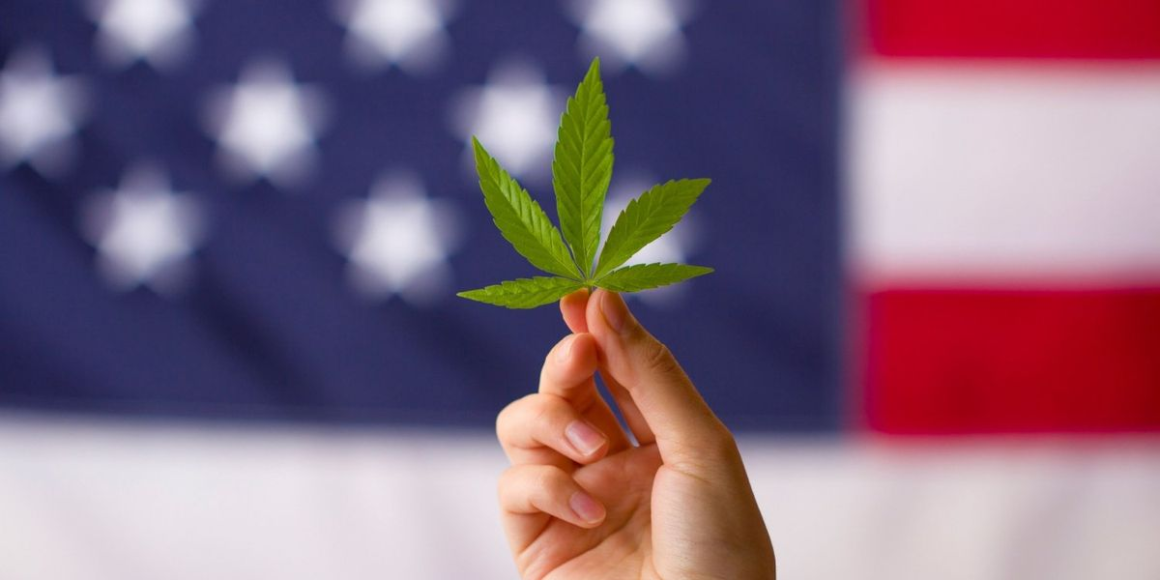April was a game-changer for the cannabis industry.
After deliberating for almost five months, the Drug Enforcement Administration moved to reschedule cannabis as lawmakers worked to combine the SAFER Banking Act with newly introduced stablecoin legislation.
Meanwhile, controversy struck as legal cannabis was seized in New Mexico, Canada’s Federal Budget 2024 was released with no mention of reform to high excise tax rates, and the saga of a once high-end cannabis dispensary finally ended in bankruptcy.
Keep reading to discover more about these industry-shaping events.
The SAFER Banking Act, which would prevent the Federal government from taking action against banks and insurance companies doing business with legal cannabis companies, is garnering renewed support as lawmakers push for its potential inclusion in a broader package combining cannabis banking and stablecoin regulation.
While this may mean it’s unlikely the package will go forward with the FAA legislation, Schumer is not giving up.
If the bills fail to advance, the SAFER Banking Act could move forward as a standalone bill, with no date set to hold it to a vote, or lawmakers may try to attach it to another bill following the elections in November.
The new motion to transfer the bill to the Senate came to a vote in the Republican-controlled Kansas state Senate, but it only received 12 out of the 24 votes it needed to move forward. The results of the vote ultimately killed the bill, leaving Kansas one of the few states that have yet to legalize medical cannabis despite years of attempts.
SB 135 would have allowed for the cultivation, processing, distribution, sale and use of medical cannabis for patients with qualifying conditions. Conditions named in the bill included Alzheimer’s disease, cancer, epilepsy or other seizure disorders, Parkinson’s disease, Tourette’s syndrome, fibromyalgia and “pain that is either chronic and severe or intractable.”
The current cannabis excise tax rate in Canada, which imposes C$1 per gram of cannabis or 10 percent of the producer’s selling price – whichever is higher – has significantly burdened the industry. High rates on sales over C$10 have impacted the profitability of the legal cannabis business, forcing operators to drive up the prices and driving consumers to the illicit market. This challenging financial environment has made it difficult for Canadian operators to expand, causing a stifled market with only a handful of major competitors.
The documents also show that the drivers had been detained for up to two and a half hours, that a K-9 unit was used on a vehicle transporting cannabis at least once and that one driver was told he would be placed under arrest and prosecuted by the DEA.
No similar incidents have been reported at other southern border crossings or in neighboring states.
If the DEA cannabis rescheduling process is successful, it would likely alleviate the issues faced by New Mexico’s cannabis industry due to the conflicting state and federal laws. In the meantime, industry stakeholders like Kirk continue to advocate for a resolution that balances the enforcement of federal laws with the rights of legal cannabis operators in the state.
In his letter, which was co-signed by the Cannabis Chamber of Commerce and several dispensaries, delivery personnel and cultivators, Kirk requests that the border patrol policy be updated to reflect the state-legal nature of cannabis products and that either any product seized be returned or that operators be monetarily compensated.
Securities Disclosure: I, Meagen Seatter, hold no direct investment interest in any company mentioned in this article.


Leave a Reply